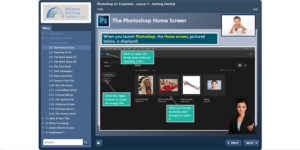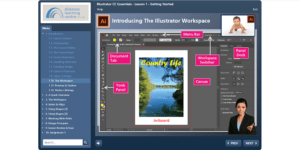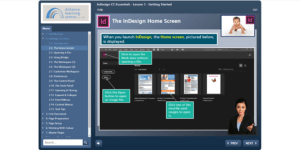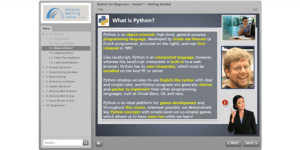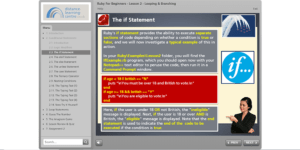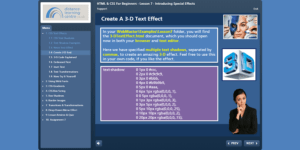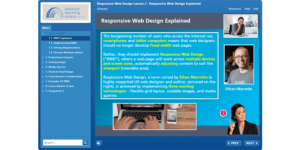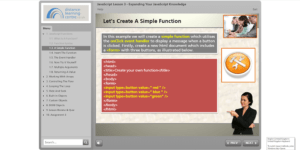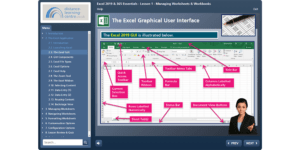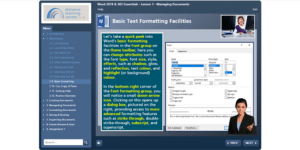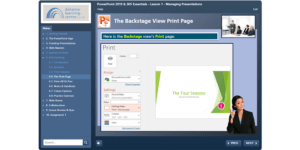Complaints & Compliments
Policy
Policy Scope
Hull Business Training Centre has adopted a Complaints & Compliments Policy to help give the best possible service, and supports all other HBTC policies, and is supported by the Complaints Procedure and Appeals Procedure. This policy and standards apply to all learners (including Apprentices), employers, employees, suppliers, contractors and visitors of Hull Business Training Centre Ltd.
Aims and Objectives
HBTC Ltd welcomes all comments on our services and we will endeavour to use this feedback as an opportunity to review and improve the organisation’s service levels. This policy and standards will help us to;
- Communicate the desire for both complaints and compliments on our services
- Set guidelines on how to communicate both complaints and compliments
- Improve accountability to our learners and employers
- Demonstrate our commitment to providing a quality provision
- Identify areas that need improvement
- Plan appropriate action for improvements
- Obtain valuable feedback
- Ensure that HBTC Ltd continuously improves its service and standards
Policy Statement
HBTC Ltd is committed to continuous improvement and realises the importance of feedback to achieve this goal. HBTC Ltd is committed to gaining formal feedback from learners, employers and employees through a variety of means, which include quantitative and qualitative data collection. HBTC also encourages and welcomes feedback through any other means, either formally or informally. HBTC Ltd will use all feedback to improve the services it offers.
Standards
HBTC Ltd will make every effort to ensure that it meets the following standards of good practice;
- Provide the opportunity for learners, employers and employees to formally, and informally, feedback their views. Feedback can be submitted in various formats;
- In person
- Telephone
- Letter
- E-mail (including our dedicated mailbox – feedback@hullbusiness.co.uk)
- During progress reviews
- During teaching sessions (may include discussion, blob trees, anonymous, reflection, post-its etc)
- Joining focus groups
- Via evaluation forms distributed at various stages
- Questionnaire for learners (start, during, ending, early, destination)
- Questionnaire for employers (six monthly)
- ESFA Learner/ Employer Satisfaction Surveys
- To deal with complaints and compliments quickly and effectively
- To use complaints and compliments to review and improve our services
- To collate all forms of feedback in a central location for review by all staff;
- Quantitative Feedback – collated within Quality Digest, with historic data to help identify trends and benchmarking.
- Qualitative Feedback – collated within the Qualitative Learner Feedback Quality Improvement Plan (QLF QIP).
- Both quantitative and qualitative feedback will be used to produce actions for improvement, with the support of all staff in Quality Workshops/ Team Meetings/ Management Meetings.
- To provide feedback where necessary (see Complaints Procedure for further guidance if appropriate).
- A formal complaint must be made in writing, and receipt will be acknowledged. HBTC will then have up to seven working days to investigate and feedback to the complainant in writing.
- Any persons who does not feel that their complaint has been dealt with satisfactorily, are advised to contact the Managing Director, Johanna Rudd, directly and a new investigation will commence
- Some complaints, despite best efforts by all parties, may remain unresolved and these cases will then be brought to the attention of our government funding bodies/ awarding bodies (as detailed in the appeals procedure), if appropriate.
- HBTC Ltd will endeavour to prevent similar complaints from reoccurring in the future, by reflecting upon the complaint and implementing improvements, and we will seek to re-establish a positive relationship wherever possible.
- Compliments are celebrated and shared with all staff, and where appropriate, displayed, e.g. Thank you cards.
Breach of Policy and Standards
Any learners or employee who knowingly or recklessly contravenes any instruction contained in, or following from, this Policy and Standards may, depending on the circumstances of the case, have disciplinary action, which could include dismissal, taken against them.
Responsibility
The Directors have overall responsibility for the operation of this policy.
This policy is reviewed at least bi-annually.
Reviewed July 2021
Definition of Terms
A complaint is an expression of dissatisfaction due to the service provided being unsatisfactory or unacceptable, or the service not being provided when it should’ve been.
A compliment is an expression of satisfaction due to the service provided being worthy of praise.
Complaints Procedure
Complaints can be received in a number of forms, both formally and informally. All complaints that are received by staff must be reported to a manager as soon as practicable, regardless of whether the complaint was formal or informal. If the situation can be rectified within the parameters of HBTC’s Policies, Procedures and Processes by the member of staff in receipt of the complaint, then this must be done. The complaint should still be reported retrospectively to a manager, with details of how it was resolved.
Informal Complaints
When an informal complaint is reported to a manager, they must make judgements on that complaint.
- Does the complaint highlight any potential risk to safety? If a risk to safety is present, the manager must act immediately, following HBTC’s Policies, Procedures and Processes and/ or seeking specialist advice and guidance if necessary.
- Can the complaint be easily rectified, without further investigation, within the parameters of HBTC’s Policies, Procedures and Processes? If so, then this must be done.
- Does the complaint require further investigation? If so, then it may be beneficial to request that the complainant make their complaint formally (in writing), so that we can formally feedback the outcome of any investigation.
Formal Complaints
When a formal complaint is reported to a manager, they must make judgements on that complaint.
- Does the complaint highlight any potential risk to safety? If a risk to safety is present, the manager must act immediately, following HBTC’s Policies, Procedures and Processes and/ or seeking specialist advice and guidance if necessary.
- Can the complaint be easily rectified, without further investigation, within the parameters of HBTC’s Policies, Procedures and Processes? If so, then this must be done.
- Does the complaint require further investigation? If so, the manager must liaise with a director. Feedback must be provided to the complainant within seven working days of receipt of the written complaint.
Investigating a Complaint
Once it has been decided that a complaint requires further investigation, the manager must liaise with a director to agree the investigation plan. This will include agreeing
- Who will lead the investigation
- Who will be questioned as part of the investigation
- Which documentation/ resources will be reviewed as part of the investigation
The investigation plan will be reviewed with a director throughout, to ensure that any emerging evidence is also reviewed as part of the investigation.
The information gathered will be reviewed by a director and a minimum of two other members of the management team (must not have been the subject of allegation or complaint). Further advice and guidance may be sought from external experts which may include L Howes (HBTC’s HR Solicitor) and Captain H Williams (HBTC’s H&S Expert). Final conclusions will be drawn, and written feedback will be given to the complainant. This must be done within seven working days. In extenuating circumstances, more time may be needed to fully explore the complaint. If this is the case, the complainant must be informed at the earliest opportunity and before the end of the original timescale, explaining the reasons why the extension to the timescale is necessary.
A final review of the complaint, the investigations and the conclusions will be undertaken to identify any areas for improvement that could be made. These will be actioned on the appropriate QIP.
All formal complaints must be recorded within the complaints file, for future review and reference.
Appeals Procedure – RQF
We do not think that you will ever have to use our appeals procedure, but if you do, the process is described below:
If you are in disagreement with your assessor concerning your assessment, you have the right to refer the matter to:
- The internal quality assurer within the centre in the first instance, and
- The Learning & Development Manager, if the matter is still unresolved, and
- The OCR/City & Guilds/ILM external quality assurer who may be consulted at the time of their next visit.
Hull Business Training Centre will investigate and respond to your appeal within 10 working days.
If you intend to refer the matter to the OCR/City & Guilds/ILM external quality assurer, it will be helpful if you have written out the details relating to the appeal prior to the quality assurer’s visit to the centre. The will enable the quality assurer to refer the matter to the chief quality assurer if they feel this is necessary.
In extreme circumstances, if the external quality assurer has been unable to bring that matter to a satisfactory conclusion, even after referral to a chief quality assurer, then you may appeal in writing directly to OCR/City & Guilds/ILM.
OCR/City & Guilds/ILM will accept an appeal from you only if the steps above have already been taken and the relevant fee is enclosed with the written appeal on the appropriate form.
For further information and a Candidate Appeal Form, write to:
The Secretary, OCR Regulations Committee, OCR, 1 Hills Road, CAMBRIDGE, CB1 2EU
or
ILM/City & Guilds, 1 Giltspur Street, LONDON, EC1A 9DD
We wish you success
Dependent on the exact qualification, to gain the full award of the qualification you must collect enough evidence to prove you are competent in all selected units or display competence so that your assessor can observe this. If you cannot finish all of the units for the full qualification, you may claim a ‘Unit Certification’, which lists the unit, or units which have been signed off by your assessor. You may do more than the necessary number of units in which case the additional units will be shown on your unit certificate.
Please refer to your EPAO’s Appeals procedure if you want to appeal the outcome of your End Point Assessment – the above is for your RQF only.
Appeals Procedure for Examinations
We do not think that you will ever have to use our appeals procedure, but if you do, the process is described below:
Every learner has the right to appeal in certain circumstances against a decision of an Examination Panel. There are two grounds on which you may appeal:
- if your performance was adversely affected by illness or other factors which you were unable or unwilling, on valid grounds to divulge to an Examination Panel before it met
- if there was a material administrative error, or the examination was not conducted according to the Regulations.
If you are feel that either or both of these circumstances apply to you, you have the right to refer the matter to one of the following within 14 days:
- The invigilator of the examination in the first instance, and
- The centre manager, if the matter is still unresolved or not referred, and
- The awarding body (City & Guilds or Pearson) if the matter hasn’t yet been referred to them by the centre, on your behalf.
Hull Business Training Centre will investigate and respond to your appeal within 10 working days.
OCR, Pearson and City & Guilds will accept an appeal from you only if the steps above have already been taken and the relevant fee is enclosed with the written appeal on the appropriate form.
For further information and a Candidate Appeal Form, write to:
City & Guilds, 1 Giltspur Street, LONDON, EC1A 9DD
or
Pearson Qualification Services, 14 The Quays, Salford Quays, Manchester, M50 3BF
